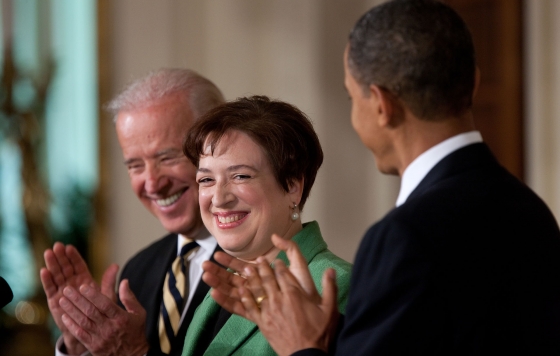Former Gourmet contributing editor Barry Estabrook, now writing for The Atlantic‘s online food section, has raised concerns that President Obama’s Supreme Court nominee Elena Kagan may be too sympathetic to biotech giant Monsanto:
It’s a good thing for Elena Kagan that there’s no non-GMO litmus test for Supreme Court nominees. She’d flunk.
As solicitor general, Kagan is supposed to represent the interests of the American people in matters that come before the Supreme Court. Instead, she has gone to bat for Monsanto. In a case that the court is currently considering, Monsanto is trying to overturn a 2007 California decision that imposed a nationwide injunction on planting the company’s genetically modified alfalfa. In March, Kagan’s office interceded on Monsanto’s behalf (click here for a PDF of its brief) even though the government was not a defendant in the appeal. The original suit was brought by Geertson Seed Farms and a collection of environmental groups, who claimed that pollen from Monsanto’s Roundup Ready alfalfa could contaminate neighboring plots of conventional alfalfa, causing irreparable harm to Geertson’s non-GMO business.
That assertion seems to me to represent a misreading of the job of solicitor general; we can’t know how she might rule on these issues if seated. And in today’s Washington Post, actual legal experts agreed:
…The job of solicitor general is to be not a legal philosopher but a lawyer with a client to defend: the United States government.
“It’s a mistake to assume that every argument an SG makes on behalf of the government reflects her personal legal philosophy,” said Lincoln Caplan, who wrote a book about the job, “The Tenth Justice.”
…Pamela Harris, head of Georgetown University’s Supreme Court Institute, said Kagan was only doing her job… “But I don’t think you can read almost anything” about a lawyer’s views in the positions she takes as solicitor general.
In other words, look at the style rather than the substance of her work as solicitor general, and don’t put too much stock in the positions her office took. Is it worth noting her involvement in Monsanto cases? Certainly. Can we hope for questions on her opinions regarding the proper role and power of corporations in society? Definitely. But let’s not talk about flunking food policy litmus tests just yet, shall we?


